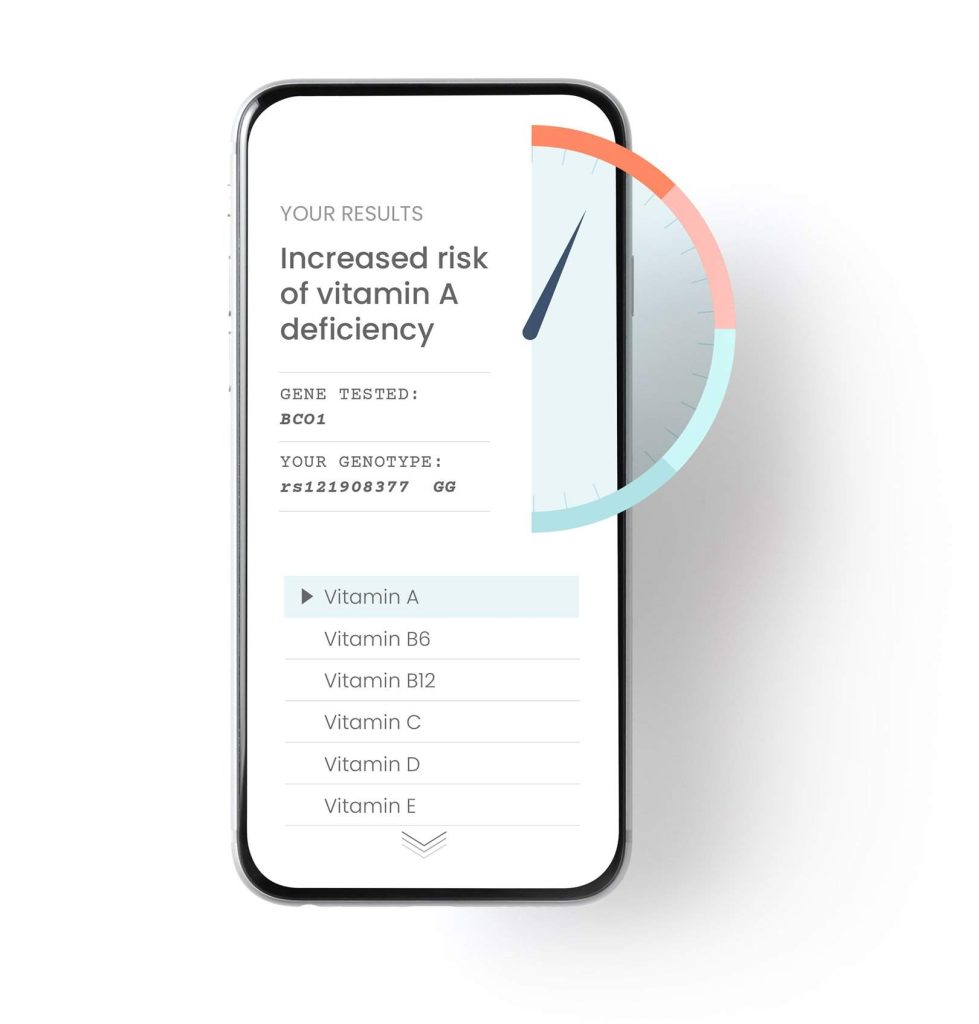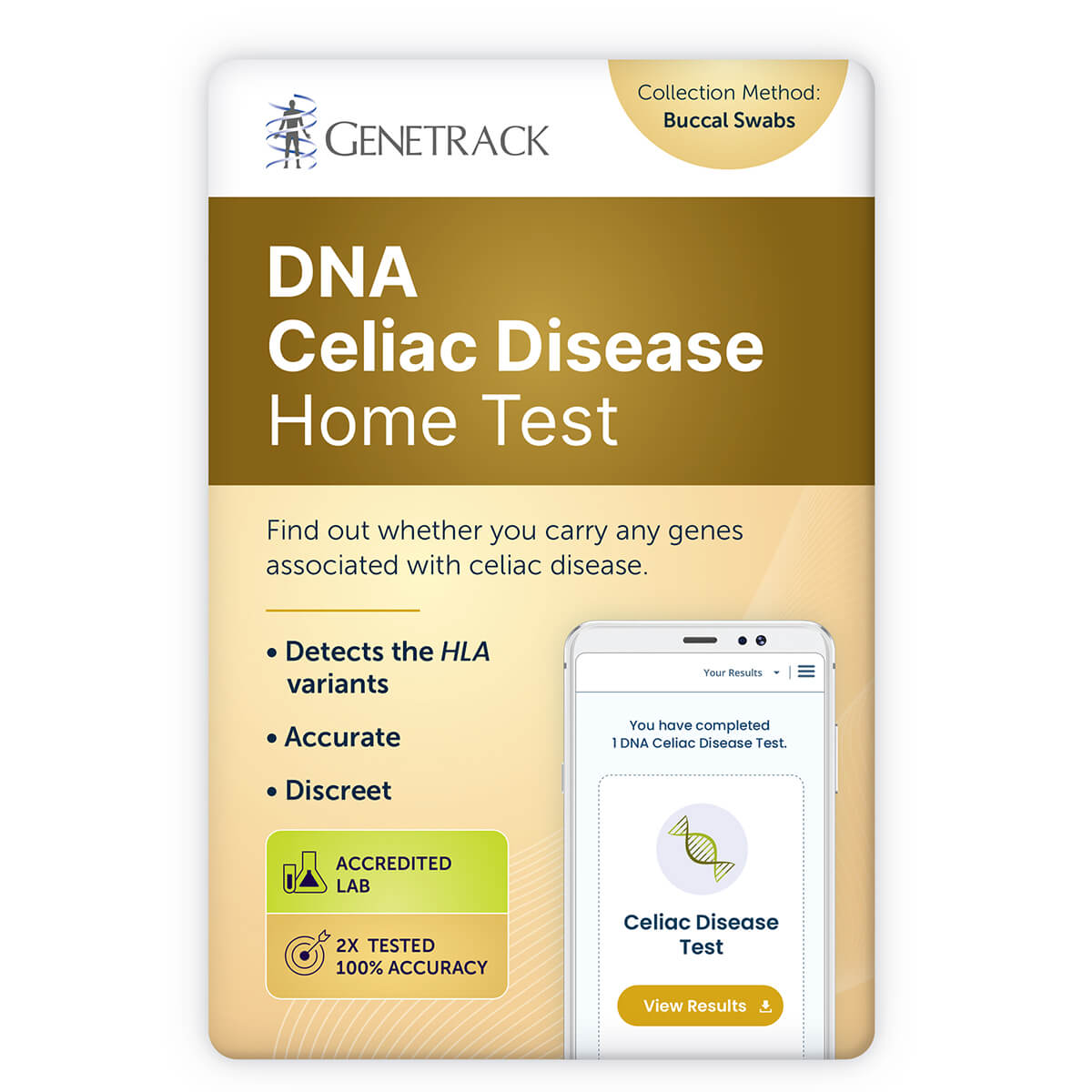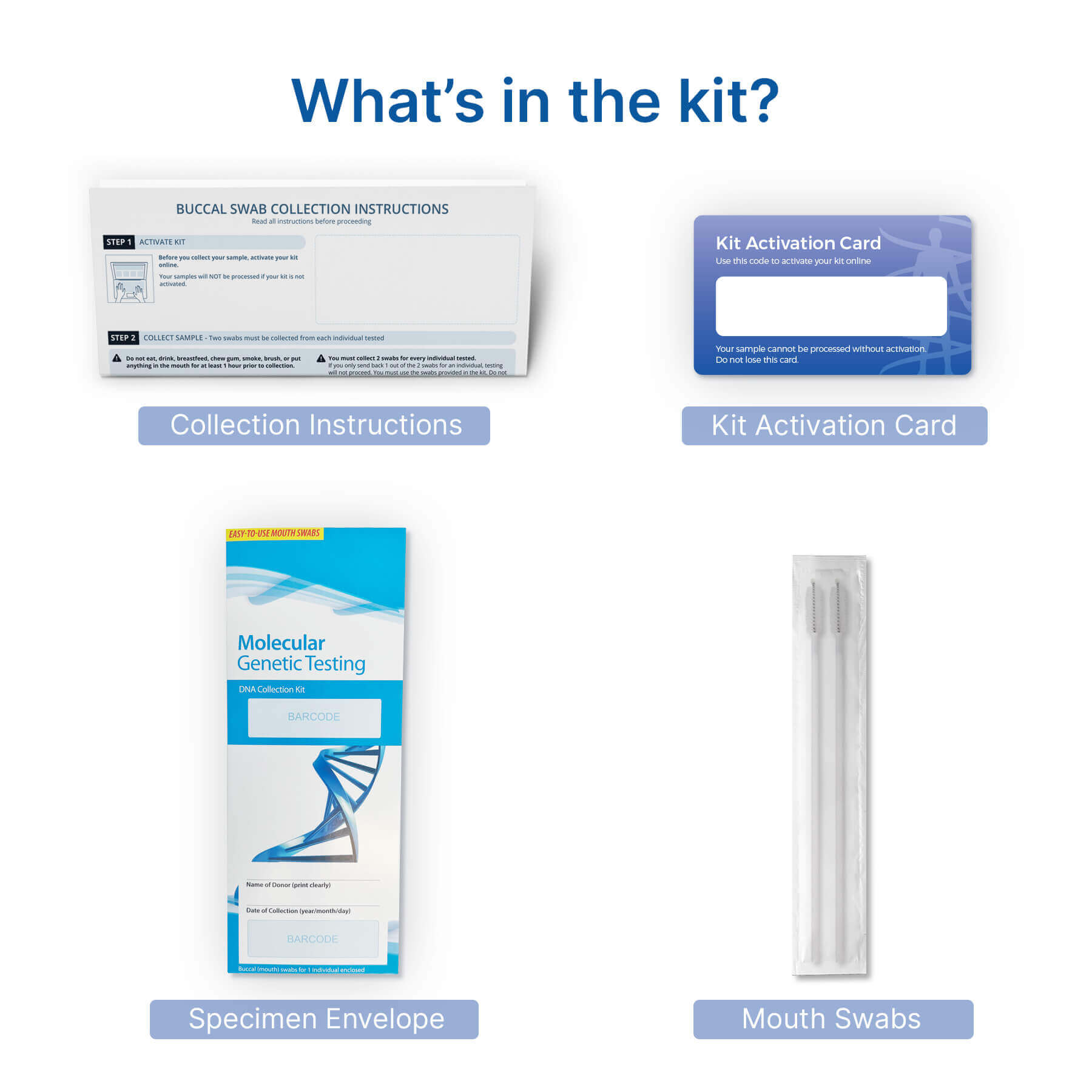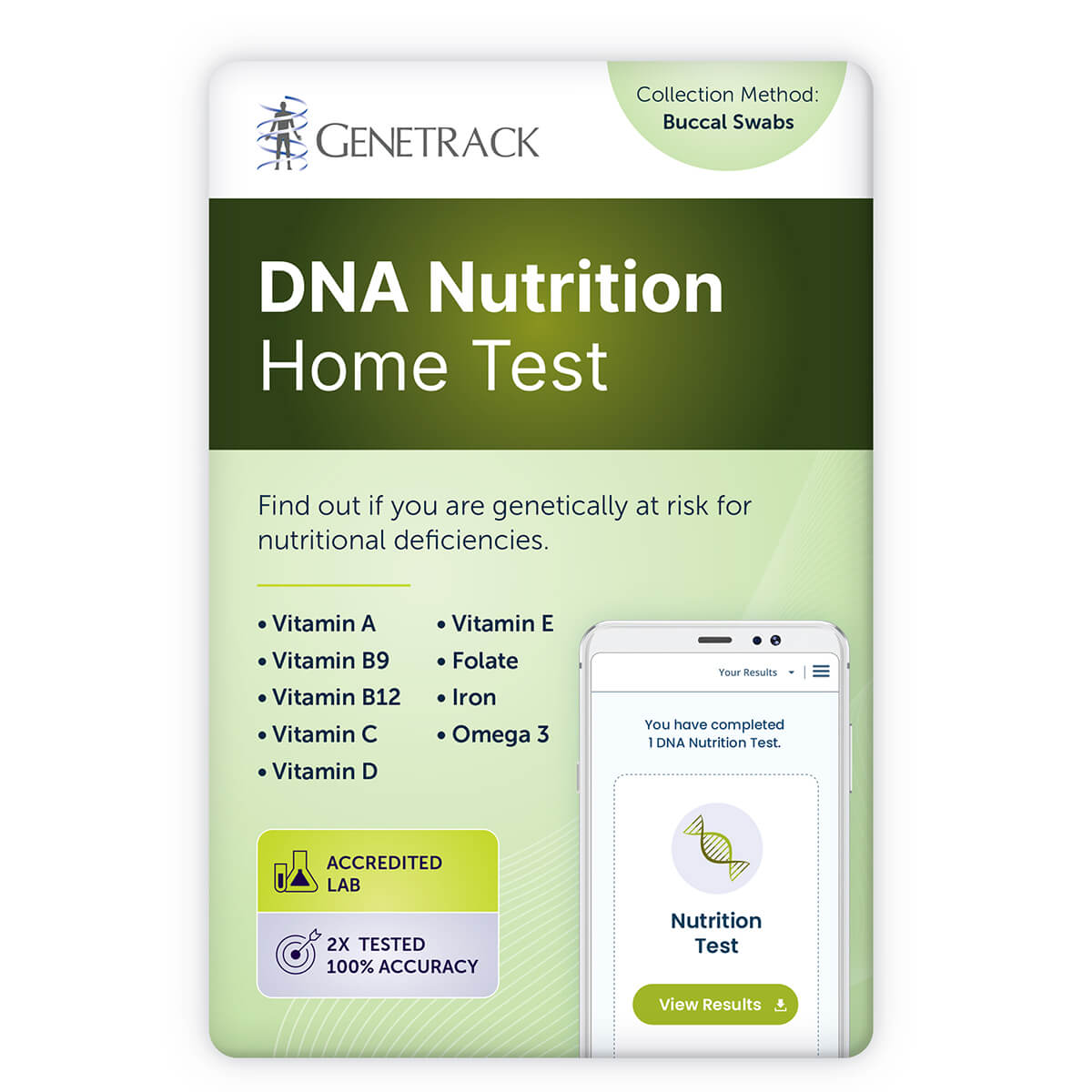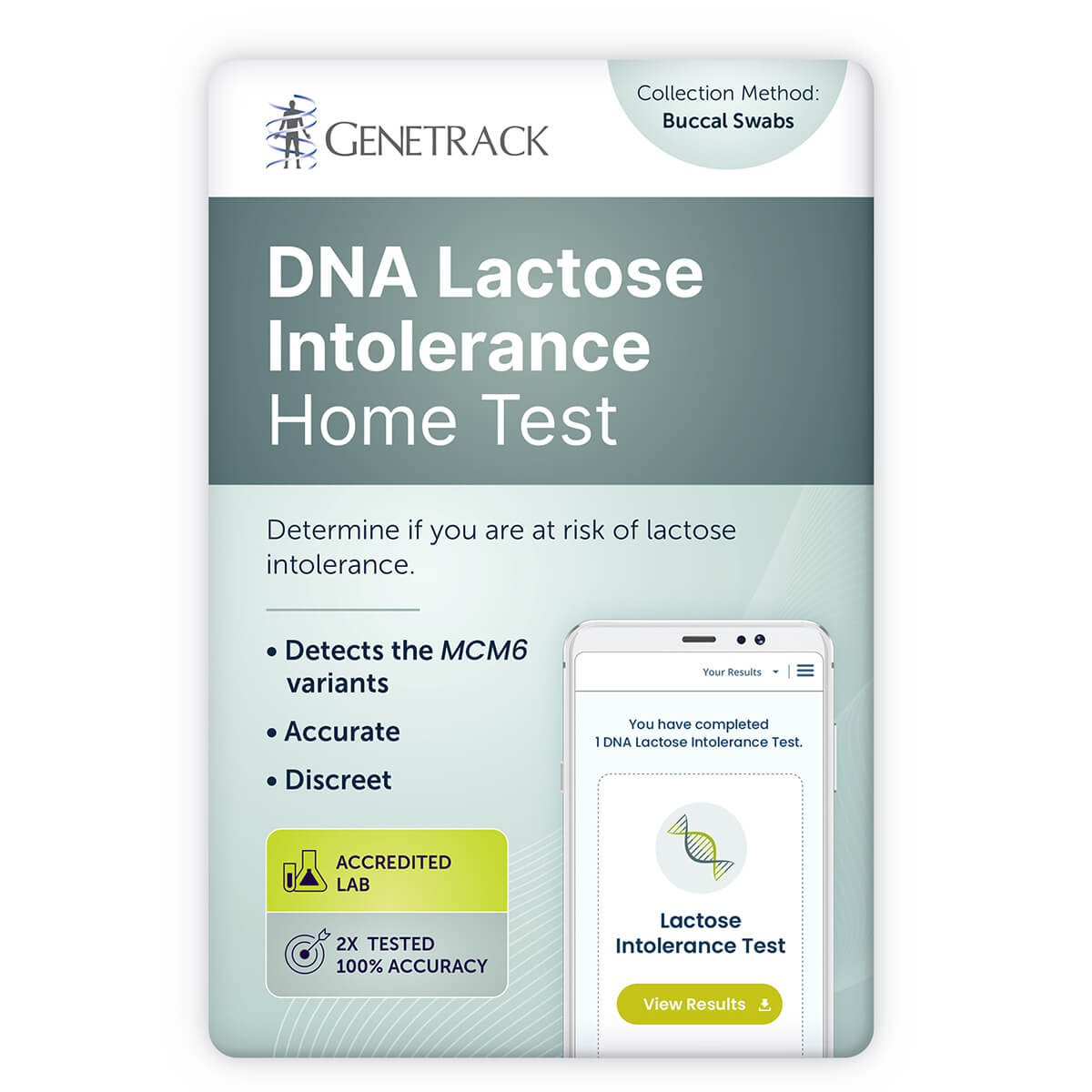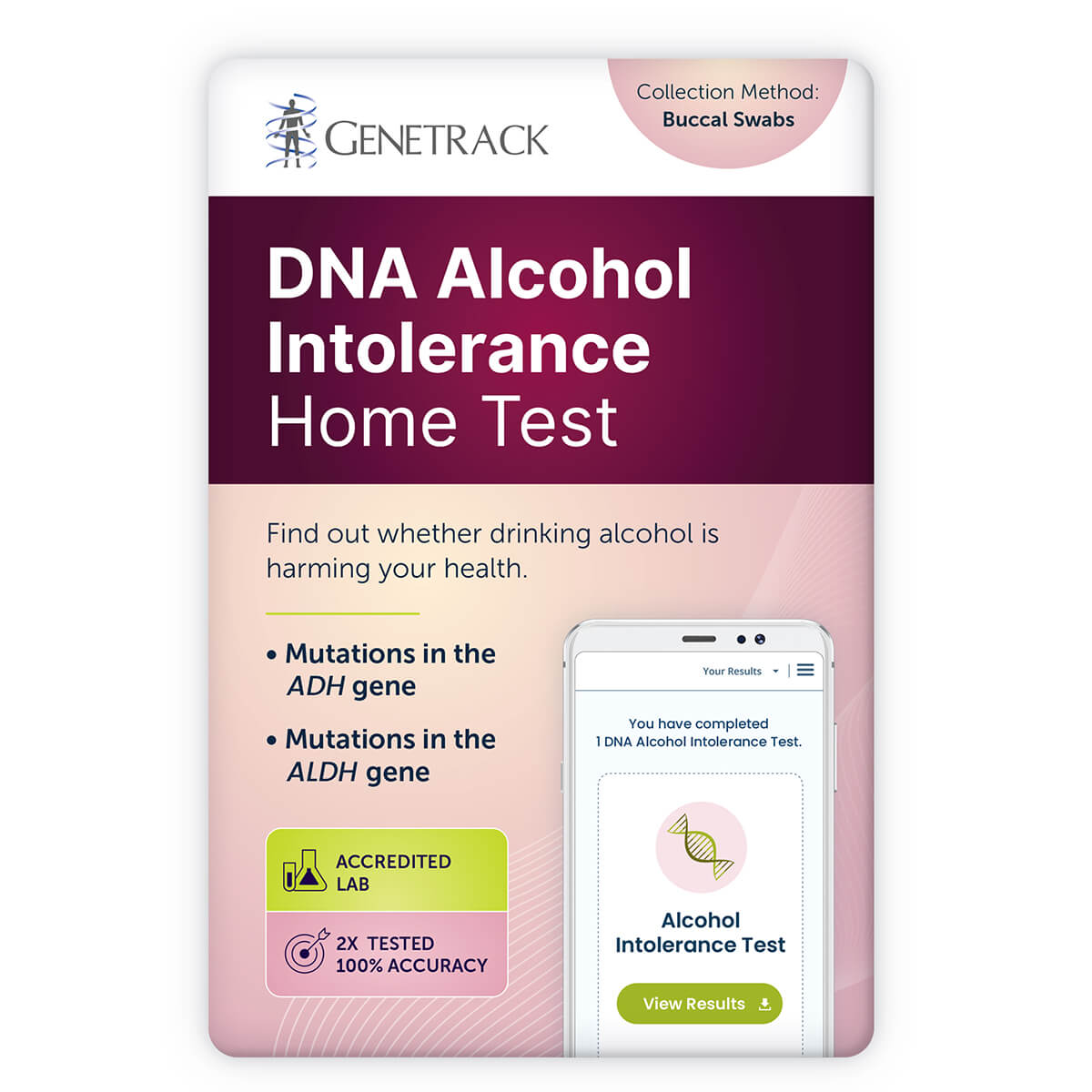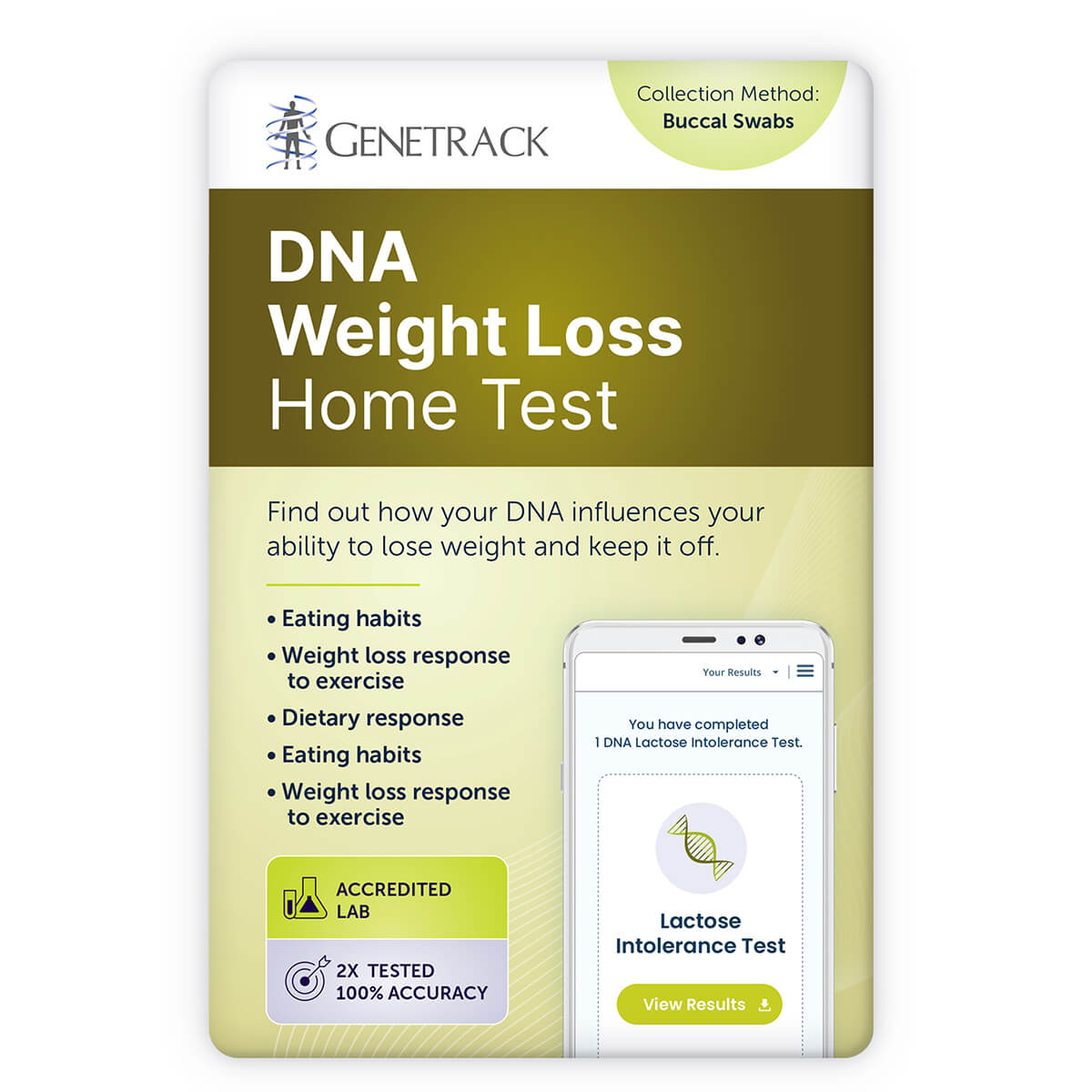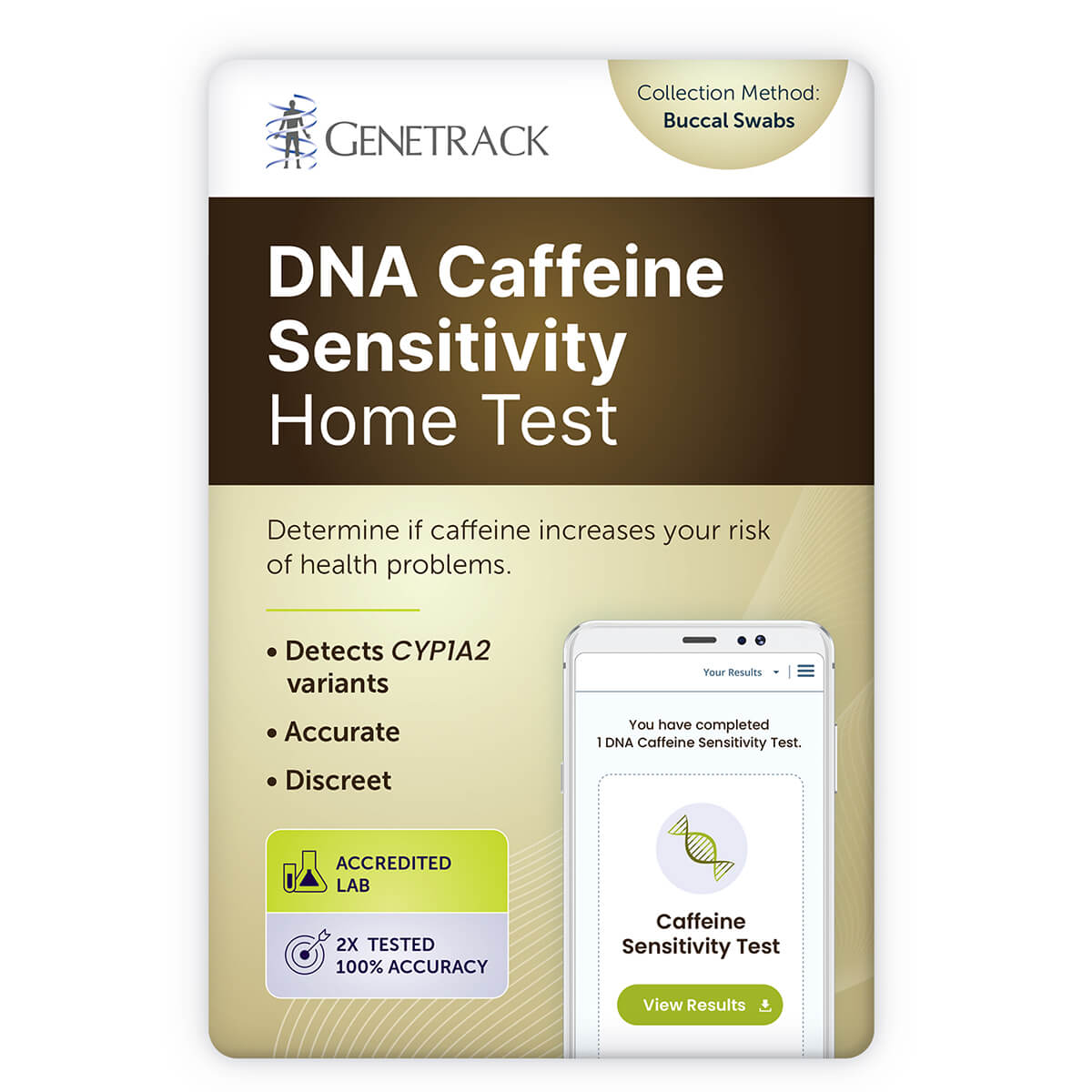DNA Celiac Disease Test
Find out whether you carry any genes associated with celiac disease.
Want to know if you have the genes associated with celiac disease? Most individuals with celiac disease have at least one genetic risk variant. In fact, a negative result means there is less than a 0.04% chance you will develop celiac disease in your lifetime. Discover your risk through our DNA test.- Identifies if you carry the celiac risk HLA variants
- Accurate results even if you’re on a gluten-free diet
- Easy-to-use mouth swabs
- Secure, confidential online results
R 8,660
AABB, ISO17025 & CLIA accredited lab
What is Celiac Disease?
Celiac disease is an autoimmune disorder triggered by gluten, a protein present in wheat, barley, rye, and other grains. Many processed foods also contain gluten.
If someone with celiac disease eats gluten, their immune system responds by damaging the lining of their intestines. This damage prevents proper nutrient absorption, which can lead to malnutrition and other health complications.

The Genetics of Celiac Disease
Celiac disease is significantly associated with particular variants of two critical genes in the human immune system: HLA-DQA1 and HLA-DQB1.
This test identifies three high-risk variants of these genes:
- HLA-DQA105
- HLA-DQB102
- HLA-DQB1*0302
Inheriting one or more of these variants increases your risk of developing celiac disease. However, having the variants does not guarantee you will get the disease.
While many individuals with these variants may develop celiac disease, not everyone will. Conversely, without these variants, the probability of getting celiac disease drops to less than 0.04%.
The test requires only a simple DNA sample from a mouth swab. No dietary changes are needed as it screens your inherent genetic makeup, not consumption of gluten. Results can help guide further discussion with your doctor about celiac disease screening options.
How is Celiac Disease Inherited?
Celiac disease risk is influenced by the HLA genes found on chromosome 6. Each individual inherits two copies of these genes—one from each parent.
Most individuals with celiac disease have at least one genetic risk allele within their HLA genes. This DNA test identifies variations in three celiac disease (CD)-associated alleles present in the HLA-DQA1 and HLA-DQB1 genes: HLA-DQA105, HLA-DQB102, and HLA-DQB1*0302.
These specific alleles can combine to produce protein complexes known as DQ2 and DQ8. Their presence or absence provides insight into an individual’s risk of gluten sensitivity and CD. If none of these CD-associated alleles are found, the CD risk is notably low.
Celiac Disease Risk Based on Genotype
- DQ2 and DQ8: Risk is 1 in 7.
- DQ2 and Homozygous HLA-DQB1*02: Risk is 1 in 10.
- DQ2 and DQ2: Risk is 1 in 10.
- DQ8 and DQ8: Risk is 1 in 12.
- DQ8 and HLA-DQB1*02: Risk is 1 in 24.
- Homozygous HLA-DQB1*02: Risk is 1 in 26.
- DQ2: Risk is 1 in 35.
- DQ8: Risk is 1 in 89.
- Heterozygous HLA-DQB1*02: Risk is 1 in 210.
- HLA-DQA1*05: Risk is 1 in 1842.
- No HLA celiac-associated alleles detected: Not at risk of developing celiac disease (risk is less than 1 in 2518).
Celiac Disease Symptoms
The symptoms of celiac disease differ among people. Whether the symptoms are mild or severe, the common factor is damage to the intestinal lining.
Common symptoms include:
- Bloating & Gas
- Appetite changes
- Nausea & Vomiting
- Constipation & Diarrhea
Weight loss may happen because the body can’t absorb nutrients, or some people may gain weight from eating more to make up for this. Continued exposure to gluten can damage the intestines and also lead to other food sensitivities, such as lactose intolerance.
If the disease is not diagnosed and treated, more severe health issues can occur. These can include:
- Fatigue
- Migraines
- Mood changes like depression and irritability
- Muscle cramps and joint pain
- Skin rashes
- Vitamin deficiencies
- Anemia
- Low blood sugar
Other symptoms may include nosebleeds, hair loss, seizures, mouth ulcers, dental issues, irregular menstrual cycles, and tingling in the legs or feet. Osteoporosis is often seen in celiac patients due to poor absorption of calcium. The disease can also cause infertility, miscarriages, or birth defects because of poor folic acid absorption.
How Home DNA Testing Works

Order Test Kit
From relationship tests to health tests, we offer a wide range of DNA tests to fit your needs.

Collect & Ship
Collect your DNA with our painless mouth swabs, then send the samples to our laboratory for analysis

Receive Results
Access your confidential results online the moment testing is completed. Our team of experts is available for any questions.
Electronic Reports Delivery
